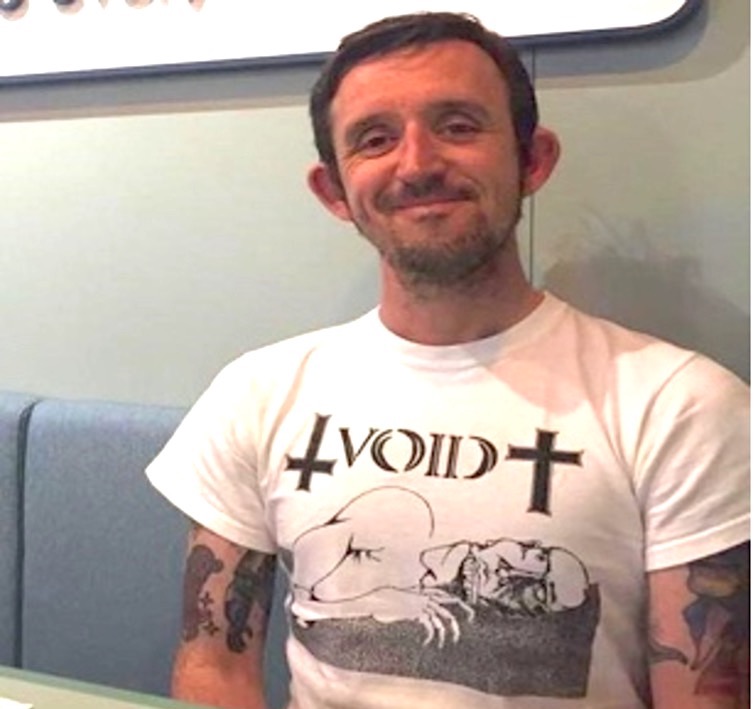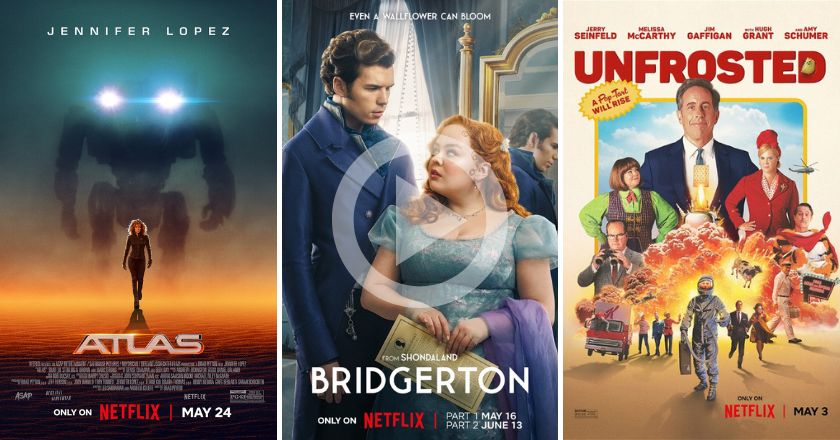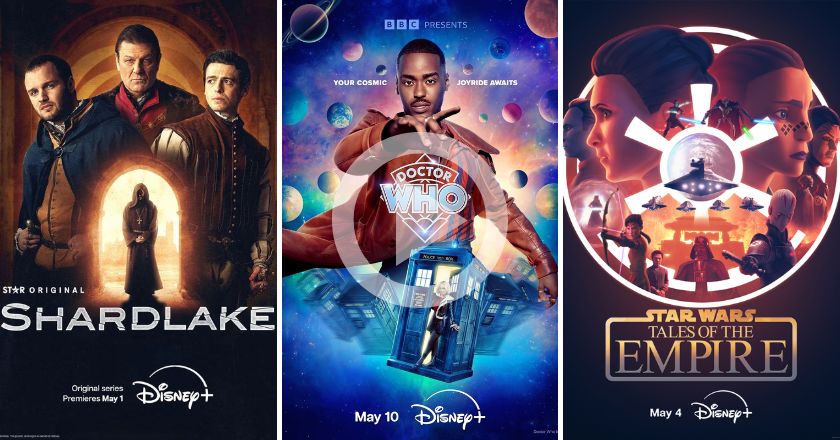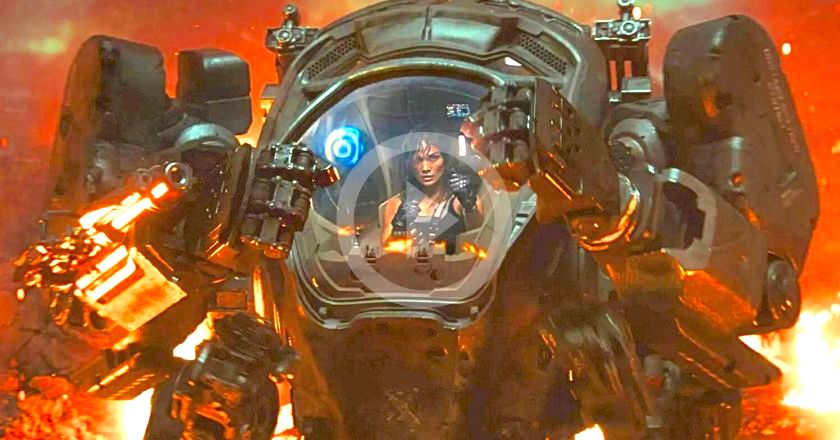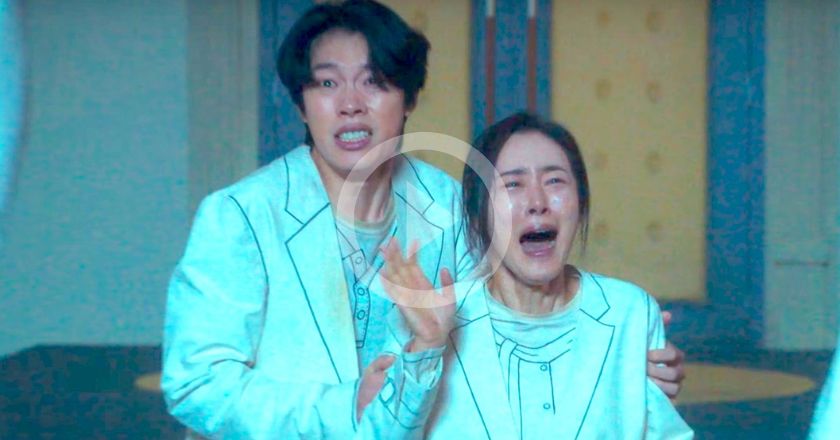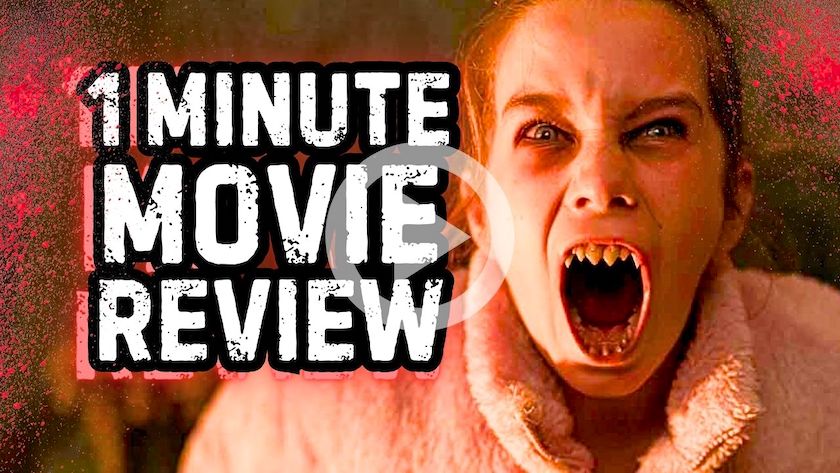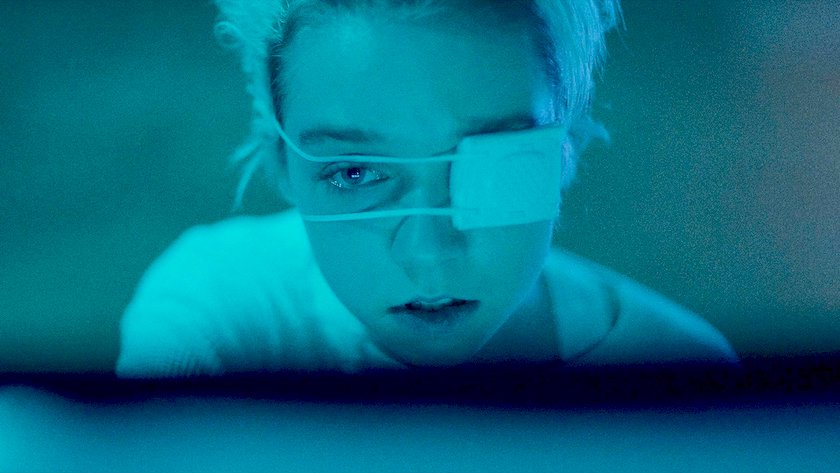
Come True is a sci-fi horror movie and the second feature from writer / director Anthony Scott Burns, who previously directed 2018 horror film Our House.
Sarah (Julia Sarah Stone) is experiencing a hard time at home. Unable to sleep at her house, she alternates between a friend’s house and sleeping rough in a playground, returning home only to shower and collect her things for the day ahead. When she learns of a local sleep study, she leaps at the chance to be a part of it. All she has to do is turn up at night and be monitored sleeping, and so it seems to be the ideal solution to her predicament.
The purpose of the study is withheld from Sarah by research assistants Riff, aka Jeremy (Landon Liboiron) and Anita (Carlee Ryski), and head scientist Dr Meyer (Christopher Heatherington). But as Sarah spends more nights at the experiment, she beings to experience terrifying and visceral nightmares. It soon becomes apparent that all the participants in the study are collectively dreaming about a shadowy, glow-eyed figure.
For the majority of its run time Come True tantalises us with surreal and primally unsettling dream imagery, a perplexing yet compelling plot, and an array of Cronenbergian gadgets and nightmare tech.
The dream sequences are effective and genuinely evocative of the disconcerting nature of a dream you don’t quite understand, but are nevertheless disturbed by. Sarah’s dreams are full of grey, amorphous blobs and shapes, slowly metamorphosing into sinister figures and jarring landscapes.

There’s an uneasy It Follows-meets-Nicholas Winding Refn vibe to the proceedings in the washed-out and seedy strip light aesthetic. Perhaps, also, a tip of the hat to Tarsem Singh’s underrated mindbender, The Cell. And the austere research facility, contrasted with the tangled wires and cables jutting out the back of experimental apparatus – like jellyfish tendrils – suggest a biotech mish-mash David Cronenberg would be chuffed to have invented.
For a long time the oblique plotting and accomplished visuals really work, but in the final third, by which time we’ve really earned a bit of an explanation, Come True refuses to tie up the loose ends. Instead, it delivers a conclusion that will undoubtedly divide opinion.
It’s possible this may not matter too much if you’re fully on board with Come True‘s visual style and opacity of plot thus far, as there’s certainly a good amount to like about the film. Not least Julia Sarah Stone’s excellent performance as Sarah and the soundtrack by Electric Youth and Pilotpriest (director Burns’ alter ego), which is heavy on urgent synth and shadowy atmosphere.
It’s a shame that Come True falters at the final hurdle, because for the most part it is an intriguing watch and is far from being a bad film. But sadly, the overriding sense of unfulfilled promise is the one we walk away with when the credits roll.

Join Screen Realm on Twitter, Facebook, Instagram, LinkedIn and YouTube.

